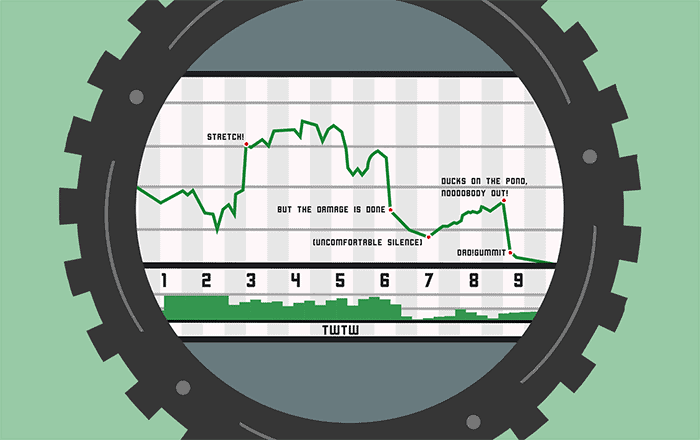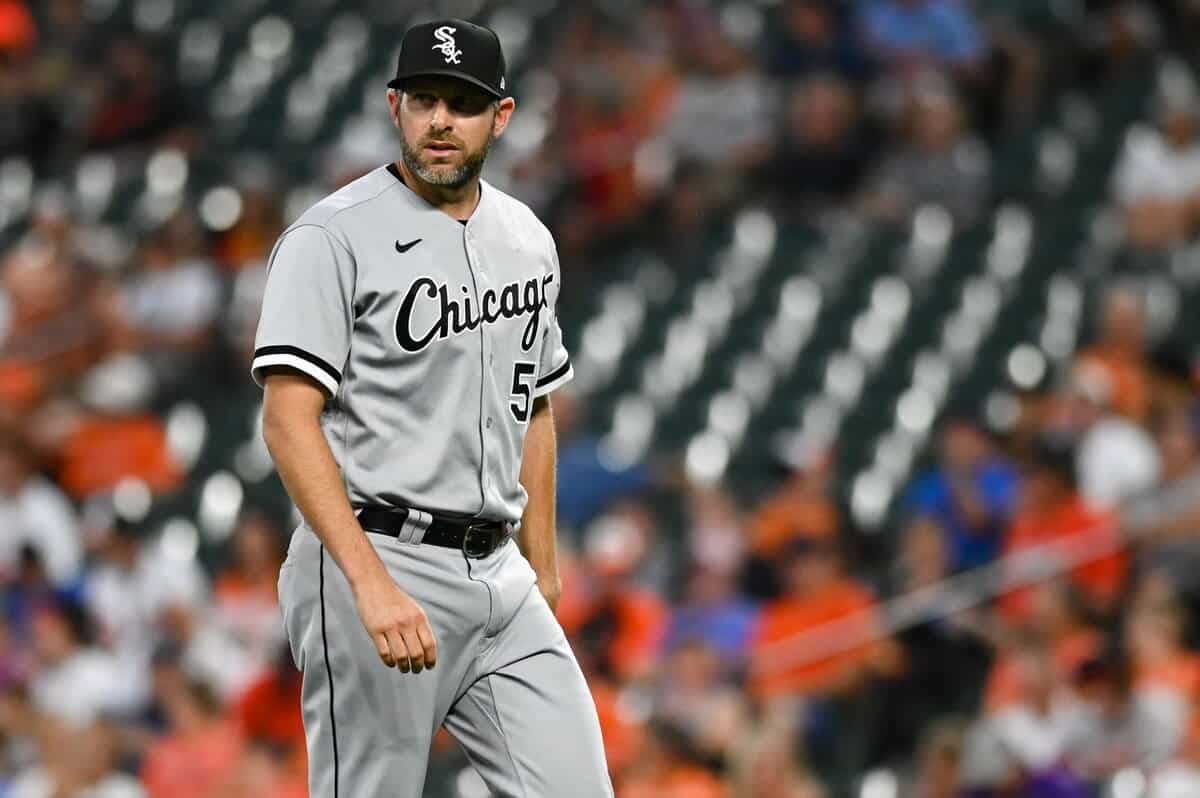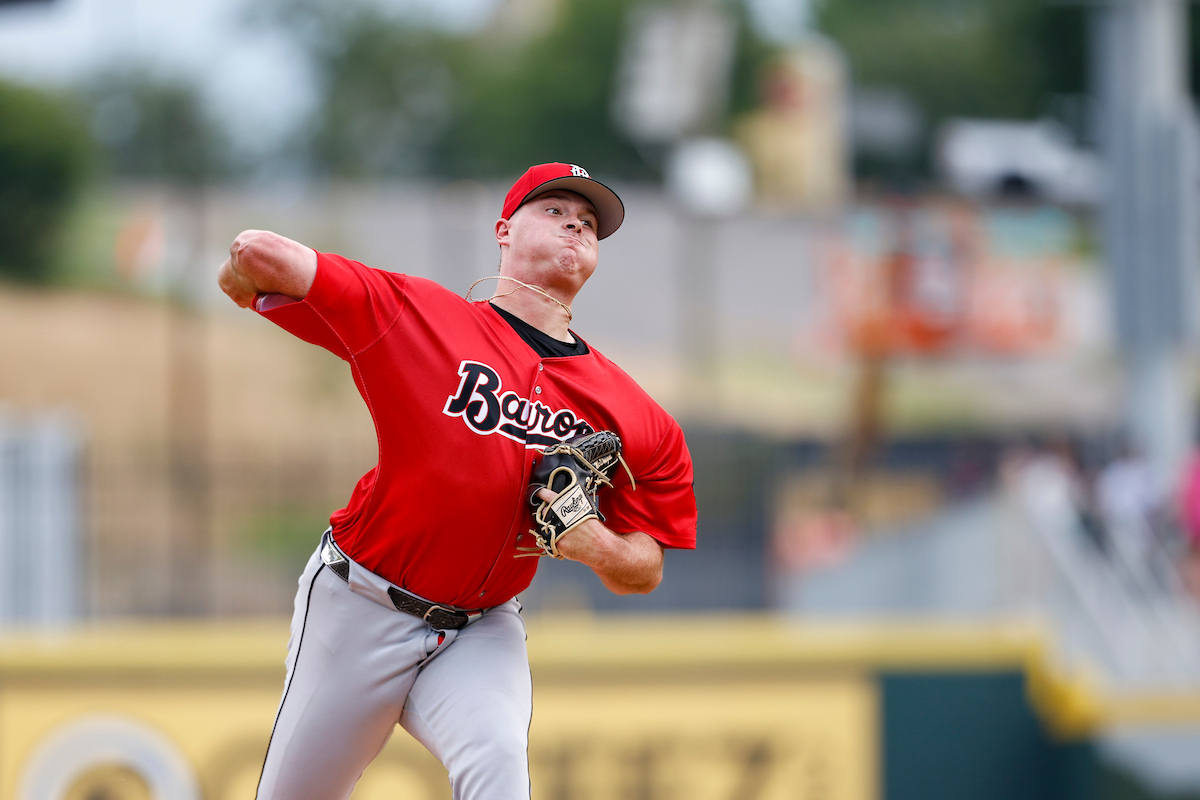The Cubs still couldn't keep José Abreu in the yard, but Yu Darvish figured out everybody else.
A second-inning solo shot by Abreu -- his fourth in as many plate appearances -- was the only run the White Sox could muster. The Cubs only had one answer themselves, but Kyle Schwarber's sixth-inning homer off Dylan Cease counted for two, and that made the difference.
The White Sox had their chances at running their winning streak to eight games with a sweep at Wrigley, especially after Darvish left the game after his strong seven. Craig Kimbrel and Jeremy Jeffress both struggled to get the third outs in the innings they started. Kimbrel walked Yasmani Grandal and Abreu to get to Eloy Jiménez, but Jeffress got a flyout to center.
Jeffress had to clean up his own mess when he loaded the bases on a Nomar Mazara infield single and walks to Danny Mendick and Tim Anderson, but Yoán Moncada couldn't take advantage, even after David Bote crashed into the rail and failed to catch a pop-up. He grounded out to Javier Báez on the second base side of second with his second life to end the game.
The close, low-scoring nature of the game put a couple members of the White Sox under the microscope. Moncada looked rough, going 1-for-5 with three strikeouts at the plate, and turning a double-play ball into a double error in the fifth.
The other was Rick Renteria, who paid the price for overseeing Cease's start a little too casually.
There was a case to relieve Cease to start the sixth, because the horseshoe up his butt got plenty of work the previous two innings. He escaped unscathed from runners on second and third with one out in the fourth, thanks to Anthony Rizzo sliding into Willson Contreras' bat at home on a contact play, which prevented Rizzo from cleanly sliding in ahead of Moncada's bad throw home. Rizzo was initially called safe, but the review showed that while McCann took a long time to apply the tag from the first base side, Rizzo's foot too longer to touch the plate due to the bat. Contreras then tried to take second on a pitch in the dirt, and James McCann gunned him down by plenty to end the inning.
In the fifth, Cease faced the bases loaded with nobody out after two walks sandwiched Moncada's double error (a firm grounder bounced off his glove and into shallow left field, and he flung away his ill-advised attempt to get Jason Heyward at third, which allowed Victor Caratini to take second). Cease struck out Jason Kipnis, then got Ian Happ to ground a ball up the middle to Anderson, who nearly ran over Mendick in starting an inning-ending 6-3 double play.
A manager in a must-win game might've sat Cease then. A manager with an eye on developing Cease would want Cease to try throwing a sixth. Sensible middle ground might include letting Cease start the inning, but with the bullpen at the ready.
Instead, Renteria let Cease forge out with no backup. He struck out Rizzo to start the inning, but when he rolled a breaking ball to Báez for a one-out double to bring Kyle Schwarber to the plate, that seemed like the time to stop the ride. But with nobody warming, Cease went at Schwarber, and Schwarber knocked a 1-2 slider out to center field for a 2-1 Cubs lead. Cease survived a couple liners to end the inning and notch a quality start, but the damage had been done.
Cease was decent, allowing the two runs on four hits and three walks while striking out five. He got away with more high breaking balls than he should've, but he had the ability to throw three pitches for strikes, which made the Cubs have to guess from more options.
Darvish happened to be excellent, shaking off Abreu's homer to strike out 10 over seven innings. He dominated Luis Robert for three-quarters of Robert's second golden sombrero, and while the rest of the lineup put up more of a fight, he matched their intensity.
The Sox had a hard time getting their leadoff hitter on base. Outside of Abreu's homer that opened the second, the Sox's only other immediate threat came in the fifth, when McCann singled to center. Mendick followed him to center two batters later, but Anderson grounded out and Moncada struck out to end the threat.
The lack of leadoff men reaching is how the Sox stranded 10 despite going just 0-for-4 with runners in scoring position.
Bullet points:
*Abreu had a chance to make history by homering in a five straight plate appearance, but he grounded out to second at 110 mph. He popped up and walked in his other two plate appearances.
*Ross Detwiler made his first appearance in a high-leverage lefty situation by handling the ninth with the Sox trailing by one. He pitched a 1-2-3 inning on 10 pitches.






